Regulierung internationaler Finanzmärkte und Banken
Die Forschungsgruppe "Regulierung internationaler Finanzmärkte und Banken" analysiert internationale Kapitalströme und die Auswirkungen von Regulierungsänderungen auf die Finanzstabilität. Integrierte Finanzmärkte begünstigen eine effiziente Kapitalallokation und Risikoteilung – sie erleichtern aber auch die grenzüberschreitende Übertragung von Schocks.
Dementsprechend hat sich die Bankenregulierung in den letzten Jahren weiterentwickelt, wobei die vollen Auswirkungen dieser Reformen noch unklar sind. Daher konzentriert sich die Forschung der Gruppe auf zwei Bereiche:
Erstens werden die Haupttreiber internationaler Kapitalströme und deren Auswirkungen auf Finanzstabilität untersucht. Zeiten hoher Finanzintegration sind oft gefolgt von Krisen mit nachhaltigen realwirtschaftlichen Folgen. Ziel ist es, zu verstehen, wie eine stabile und effektive Kreditvergabe gewährleistet werden kann.
Zweitens wird untersucht, wie sich Veränderungen in der Regulierung und Aufsicht auf das grenzüberschreitende Bankgeschäft auswirken, insbesondere im Kontext der europäischen Integration. Dazu gehört die Bewertung des Trade-offs zwischen regulatorischer Harmonisierung und unbeabsichtigten Marktverzerrungen.
Zwei Datenprojekte tragen zu diesen Forschungsthemen bei: die International Banking Library, eine webbasierte Plattform für den Forschungsaustausch mit einem vierteljährlichen Newsletter, der mehr als 700 Abonnenten erreicht, und die Financial Markets Directives Database, die die Umsetzung der wichtigsten EU-Vorschriften im Bereich Finanzmärkte mit besonderem Schwerpunkt auf der Europäischen Bankenunion dokumentiert. Gemeinsam fördern sie eine evidenzbasierte Politikanalyse und erhöhen die Sichtbarkeit der Gruppe.
Forschungscluster
Wirtschaftliche Dynamik und StabilitätIhr Kontakt

- Abteilung Finanzmärkte
PROJEKTE
10.2021 ‐ 06.2025
Distributional Effects of Macroeconomic Policies in Europe (DEMAP)
Leibniz-Gemeinschaft
Das Projekt untersucht wie politische Maßnahmen auf dem Level der Europäischen Union, wie zum Beispiel der European Recovery Fund, die Ungleichheit zwischen Haushalten beeinflusst.
07.2017 ‐ 12.2022
Die politische Ökonomie der europäischen Bankenunion
Europäischer Sozialfonds (ESF)
Ursachen für nationale Unterschiede in der Umsetzung der Bankenunion und daraus resultierende Auswirkungen auf die Finanzstabilität.
01.2015 ‐ 12.2017
Dynamic Interactions between Banks and the Real Economy
Deutsche Forschungsgemeinschaft (DFG)
Referierte Publikationen

Taxing Banks: An Evaluation of the German Bank Levy
in: Journal of Banking and Finance, November 2016
Abstract
Bank distress can have severe negative consequences for the stability of the financial system. Regimes for the restructuring and resolution of banks, financed by bank levies, aim at reducing these costs. This paper evaluates the German bank levy, which has been implemented since 2011. Our analysis offers three main insights. First, revenues raised through the levy were lower than expected. Second, the bulk of the payments were contributed by large commercial banks and by the central institutions of savings banks and credit unions. Third, for those banks, which were affected by the levy, we find evidence for a reduction in lending and higher deposit rates.
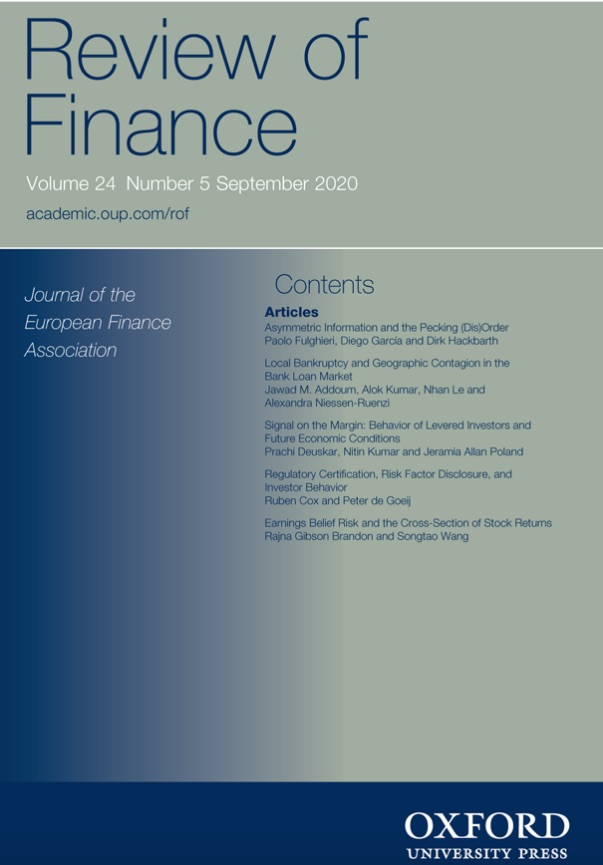
Lend Global, Fund Local? Price and Funding Cost Margins in Multinational Banking
in: Review of Finance, Nr. 5, 2016
Abstract
In a proposed model of a multinational bank, interest margins determine local lending by foreign affiliates and the internal funding by parent banks. We exploit detailed parent-affiliate-level data of all German banks to empirically test our theoretical predictions in pre-crisis times. Local lending by affiliates depends negatively on price margins, the difference between lending and deposit rates in foreign markets. The effect of funding cost margins, the gap between local deposit rates faced by affiliates abroad and the funding costs of their parents, on internal capital market funding is positive but statistically weak. Interest margins are central to explain the interaction between internal capital markets and foreign affiliates lending.
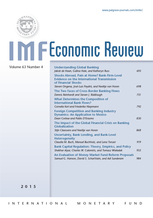
Uncertainty, Bank Lending, and Bank-level Heterogeneity
in: IMF Economic Review, Nr. 4, 2015
Abstract
We analyze how uncertainty affects bank lending. We measure uncertainty as the cross-sectional dispersion of shocks to bank-level variables. Comparing this measure of uncertainty in banking to more traditional measures of uncertainty, we find similar but no identical patterns. Higher uncertainty in banking has negative effects on bank lending. This effect is heterogeneous across banks: lending by banks that are better capitalized and have higher liquidity buffers tends to be affected less. Also, the degree of internationalization matters, as loan supply by banks in financially open countries is affected less by uncertainty. The impact of the ownership status of the individual bank is less important, in contrast.
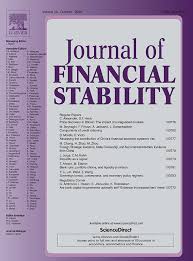
Cross-border Interbank Networks, Banking Risk and Contagion
in: Journal of Financial Stability, 2015
Abstract
Recent events have highlighted the role of cross-border linkages between banking systems in transmitting local developments across national borders. This paper analyzes whether international linkages in interbank markets affect the stability of interconnected banking systems and channel financial distress within a network consisting of banking systems of the main advanced countries for the period 1994–2012. Methodologically, I use a spatial modeling approach to test for spillovers in cross-border interbank markets. The results suggest that foreign exposures in banking play a significant role in channeling banking risk: I find that countries that are linked through foreign borrowing or lending positions to more stable banking systems abroad are significantly affected by positive spillover effects. From a policy point of view, this implies that in stable times, linkages in the banking system can be beneficial, while they have to be taken with caution in times of financial turmoil affecting the whole system.
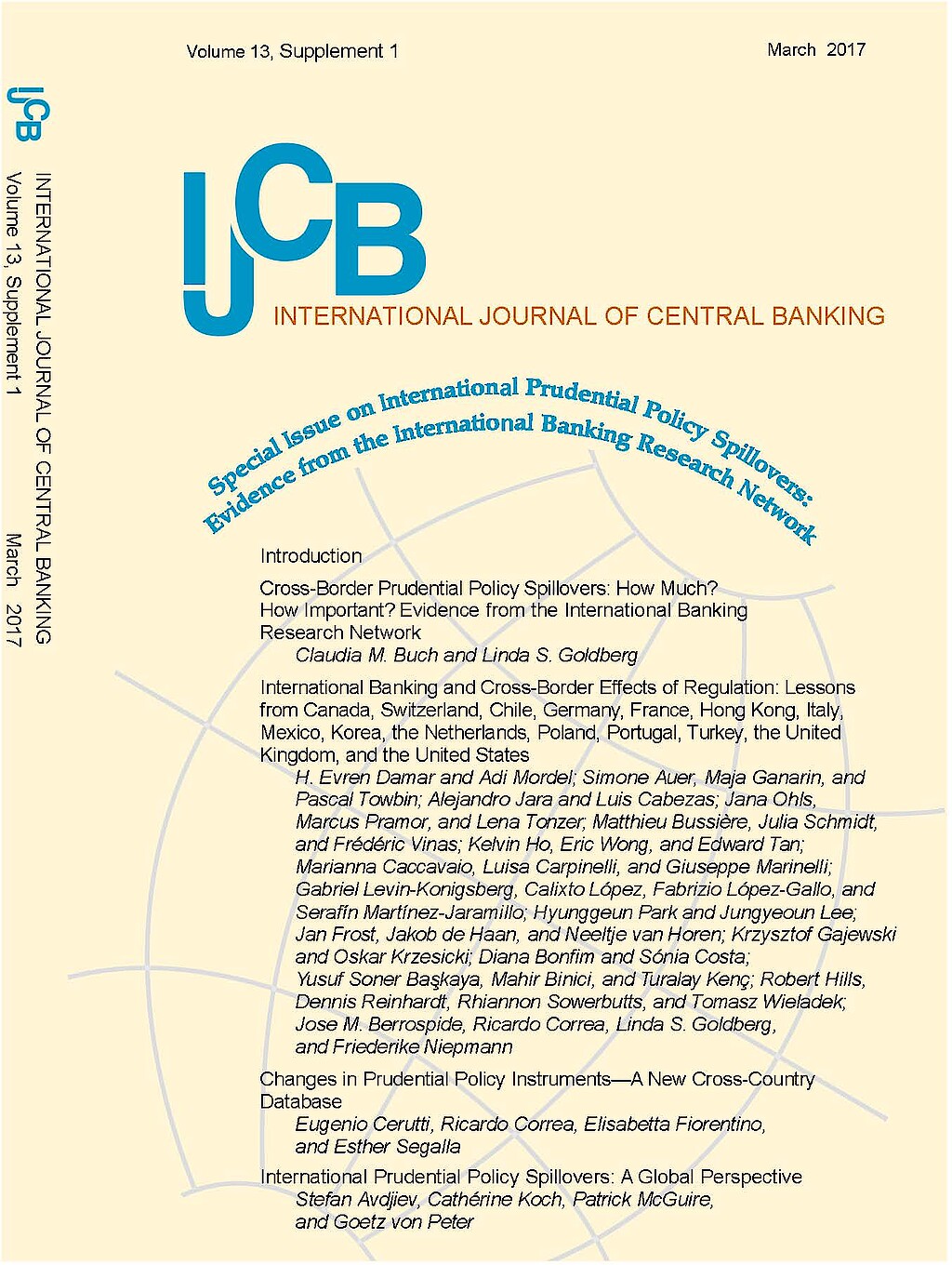
Financial Stability and Central Bank Governance
in: International Journal of Central Banking, Nr. 4, 2014
Abstract
The financial crisis has ignited a debate about the appropriate objectives and the governance structure of Central Banks. We use novel survey data to investigate the relation between these traits and banking system stability focusing in particular on their role in micro-prudential supervision. We find that the separation of powers between single and multiple bank supervisors cannot explain credit risk prior or during the financial crisis. Similarly, a large number of Central Bank governance traits do not correlate with system fragility. Only the objective of currency stability exhibits a significant relation with non-performing loan levels in the run-up to the crisis. This effect is amplified for those countries with most frequent exposure to IMF missions in the past. Our results suggest that the current policy discussion whether to centralize prudential supervision under the Central Bank and the ensuing institutional changes some countries are enacting may not produce the improvements authorities are aiming at. Whether other potential improvements in prudential supervision due to, for example, external disciplinary devices, such as IMF conditional lending schemes, are better suited to increase financial stability requires further research.
Arbeitspapiere
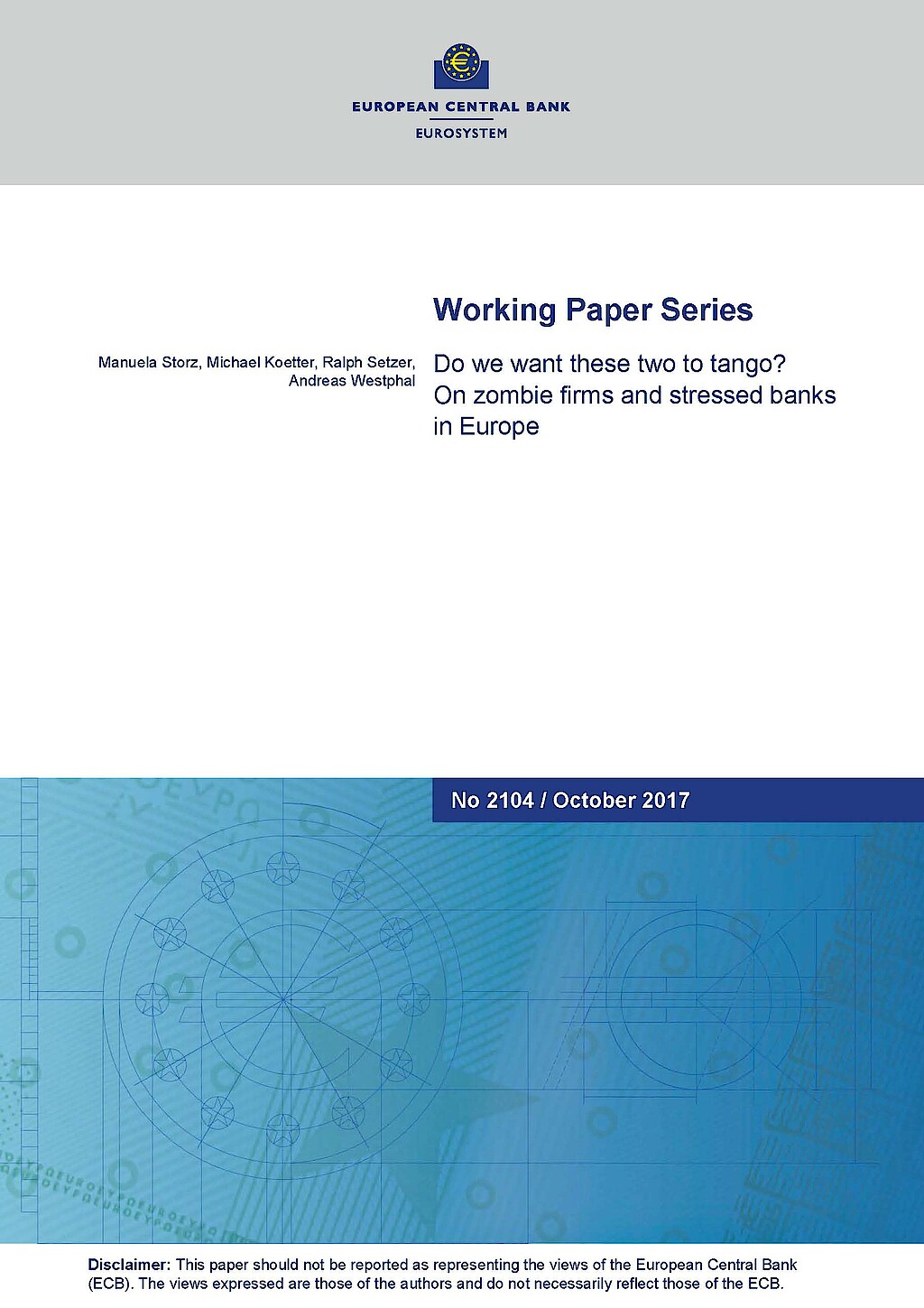
Do We Want These Two to Tango? On Zombie Firms and Stressed Banks in Europe
in: ECB Working Paper, 2017
Abstract
We show that the speed and type of corporate deleveraging depends on the interaction between corporate and financial sector health. Based on granular bank-firm data pertaining to small and medium-sized enterprises (SME) from five stressed and two non-stressed euro area economies, we show that “zombie” firms generally continued to lever up during the 2010–2014 period. Whereas relationships with stressed banks reduce SME leverage on average, we also show that zombie firms that are tied to weak banks in euro area periphery countries increase their indebtedness even further. Sustainable economic recovery therefore requires both: deleveraging of banks and firms.
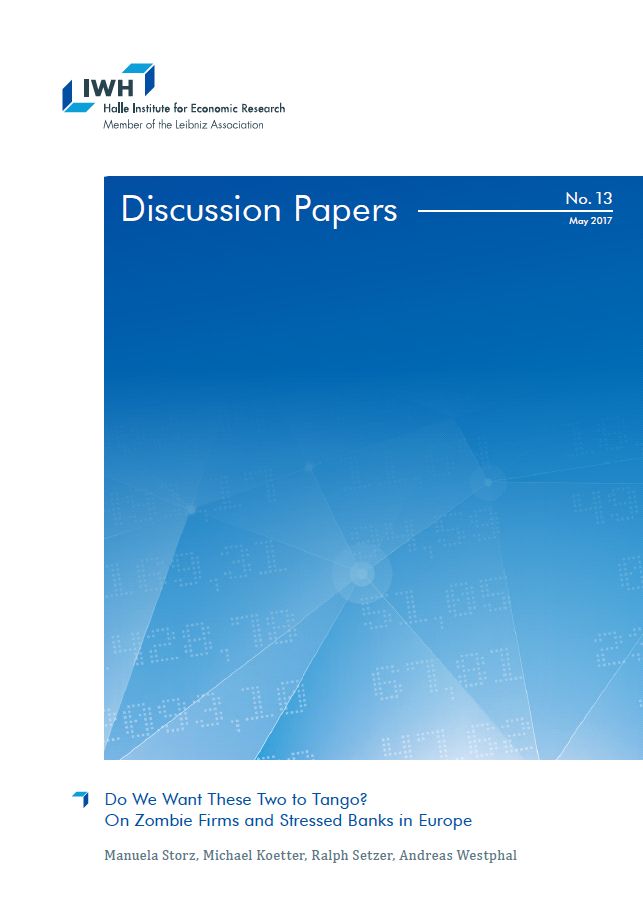
Do We Want These Two to Tango? On Zombie Firms and Stressed Banks in Europe
in: IWH Discussion Papers, Nr. 13, 2017
Abstract
We show that the speed and type of corporate deleveraging depends on the interaction between corporate and financial sector health. Based on granular bank-firm data pertaining to small and medium-sized enterprises (SME) from five stressed and two non-stressed euro area economies, we show that “zombie” firms generally continued to lever up during the 2010–2014 period. Whereas relationships with stressed banks reduce SME leverage on average, we also show that zombie firms that are tied to weak banks in euro area periphery countries increase their indebtedness even further. Sustainable economic recovery therefore requires both: deleveraging of banks and firms.

Inside Asset Purchase Programs: The Effects of Unconventional Policy on Banking Competition
in: ECB Working Paper Series, Nr. 2017, 2017
Abstract
We test if unconventional monetary policy instruments influence the competitive conduct of banks. Between q2:2010 and q1:2012, the ECB absorbed Euro 218 billion worth of government securities from five EMU countries under the Securities Markets Programme (SMP). Using detailed security holdings data at the bank level, we show that banks exposed to this unexpected (loose) policy shock mildly gained local loan and deposit market shares. Shifts in market shares are driven by banks that increased SMP security holdings during the lifetime of the program and that hold the largest relative SMP portfolio shares. Holding other securities from periphery countries that were not part of the SMP amplifies the positive market share responses. Monopolistic rents approximated by Lerner indices are lower for SMP banks, suggesting a role of the SMP to re-distribute market power differentially, but not necessarily banking profits.
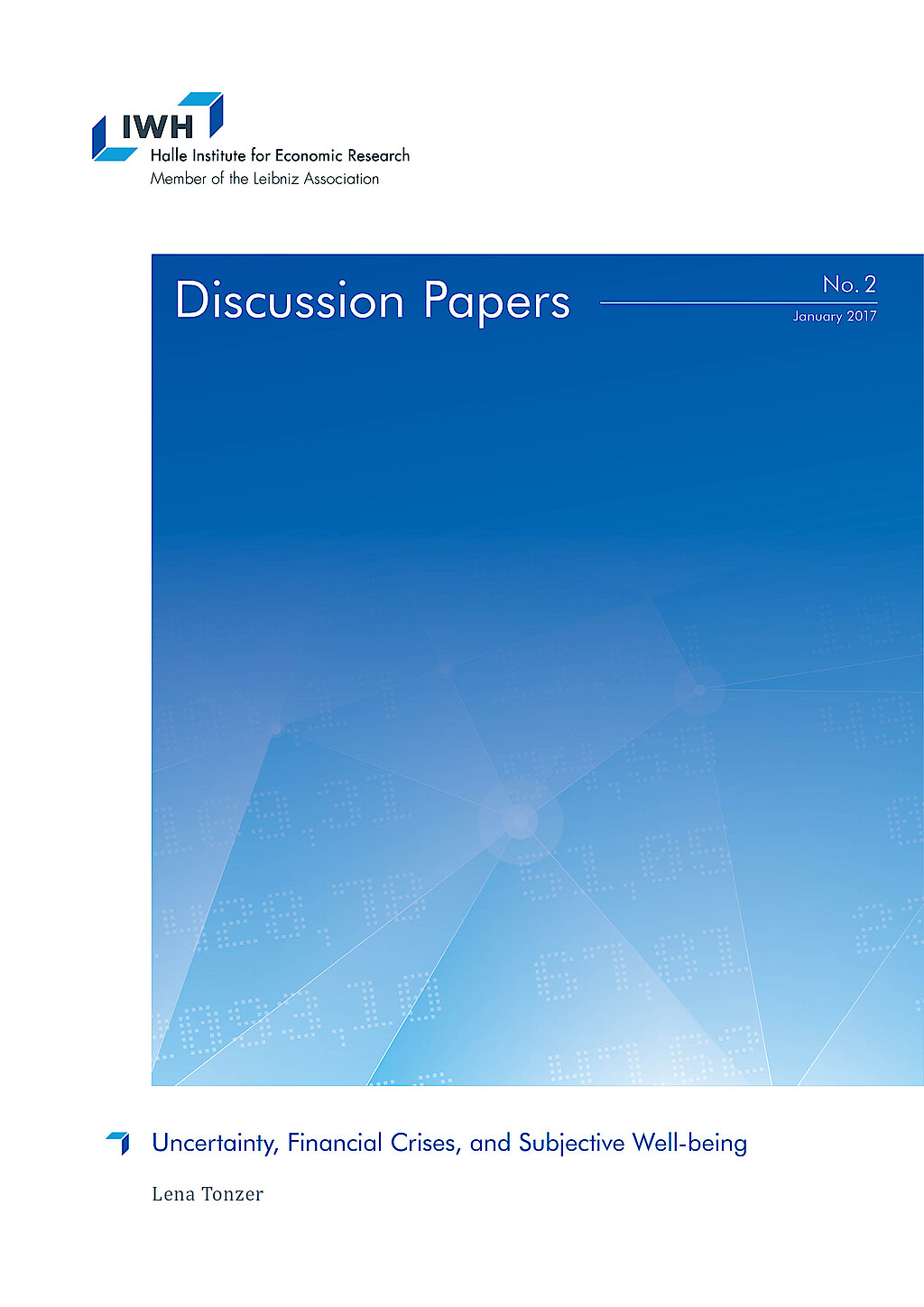
Uncertainty, Financial Crises, and Subjective Well-being
in: IWH Discussion Papers, Nr. 2, 2017
Abstract
This paper focuses on the effect of uncertainty as reflected by financial market variables on subjective well-being. The analysis is based on Eurobarometer surveys, covering 20 countries over the period from 2000 to 2013. Individuals report lower levels of life satisfaction in times of higher uncertainty approximated by stock market volatility. This effect is heterogeneous across respondents: The probability of being unsatisfied is higher for respondents who are older, less educated, and live in one of the GIIPS countries of the euro area. Furthermore, higher uncertainty in combination with a financial crisis increases the probability of reporting low values of life satisfaction.

To Separate or not to Separate Investment from Commercial Banking? An Empirical Analysis of Attention Distortion under Multiple Tasks
in: IWH Discussion Papers, Nr. 2, 2016
Abstract
In the wake of the 2008/2009 financial crisis, a number of policy reports (Vickers, Liikanen, Volcker) proposed to separate investment banking from commercial banking to increase financial stability. This paper empirically examines one theoretical justification for these proposals, namely attention distortion under multiple tasks as in Holmstrom and Milgrom (1991). Universal banks can be viewed as combining two different tasks (investment banking and commercial banking) in the same organization. We estimate pay-performance sensitivities for different segments within universal banks and for pure investment and commercial banks. We show that the pay-performance sensitivity is higher in investment banking than in commercial banking, no matter whether it is organized as part of a universal bank or in a separate institution. Next, the paper shows that relative pay-performance sensitivities of investment and commercial banking are negatively related to the quality of the loan portfolio in universal banks. Depending on the specification, we obtain a reduction in problem loans when investment banking is removed from commercial banks of up to 12 percent. We interpret the evidence to imply that the higher pay-performance sensitivity in investment banking directs the attention of managers away from commercial banking within universal banks, consistent with Holmstrom and Milgrom (1991). Separation of investment banking and commercial banking may indeed be associated with a reduction in risk in commercial banking.















